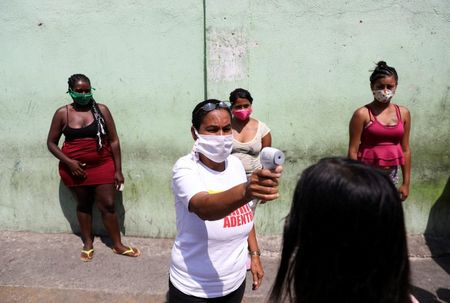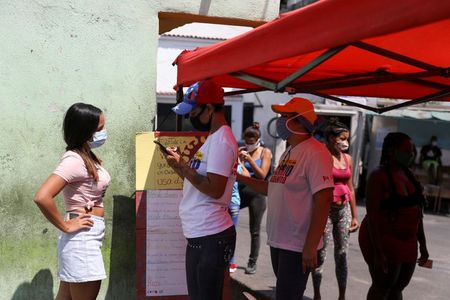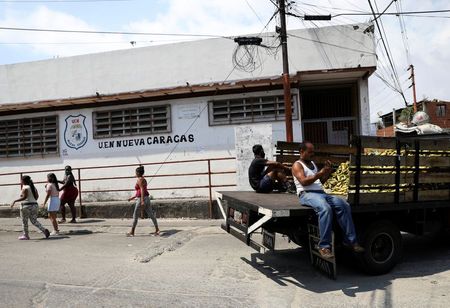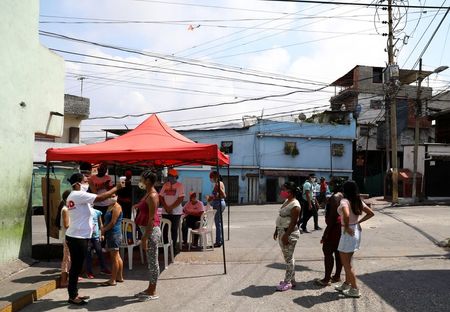By Mayela Armas and Corina Pons
CARACAS (Reuters) – Venezuela’s government is employing harsher measures in one of Caracas’ largest barrios to ensure residents comply with a coronavirus quarantine, as many poor Venezuelans continue to head outside in search of scarce food and water.
Over the past few days, local Socialist party councils have issued permits to thousands of families living in the Catia barrio that allow only one family member out at a time, and deployed a feared special police unit to enforce the measure, community leaders and residents told Reuters.
Venezuelan President Nicolas Maduro imposed a nationwide quarantine on March 17, a few days after authorities confirmed the first case of the COVID-19 illness caused by the virus.
In Catia, however, many residents flouted the order and continued to congregate in public markets and squares.
Venezuela’s health system has collapsed during a six-year economic crisis, raising worries that the virus could spread unchecked. Maduro, however, says the quarantine and mandatory use of face masks outdoors are working, and his government so far has confirmed only 181 cases and 9 deaths.
In Catia, a sprawling neighborhood of 400,000 people in western Caracas, Socialist party representatives went door-to-door handing out the permits – several of which were reviewed by Reuters – issued as part of a “Special Mobility Control Plan.”
The head of Caracas’ capital district, Dario Vivas, confirmed the new measures on state television on Wednesday and said it could be expanded to other areas if it was considered a success in Catia.
To enforce compliance with the “Catia Plan,” authorities have set up over 40 checkpoints to check permits. Four residents said several were manned by officers from the Venezuelan National Police’s Special Action Force (FAES), a unit accused by citizens and government critics of extrajudicial killings and torture.
“If the FAES say you can’t leave home, you don’t and that’s that,” said one Catia resident, speaking anonymously due to his fear of the police.
A Reuters investigation last year showed how Maduro was deploying the FAES in poor restive neighborhoods to quash dissent and maintain control. Maduro has also said the FAES is victim of an international defamation campaign.
Residents said officers were sending home any individual without a permit, which allows a person out until midday, and checking that only one family member was outside at a time. They said many Catia families had spent weeks without running water and without receiving government food handouts.
(Writing by Angus Berwick; Editing by Bill Berkrot)





